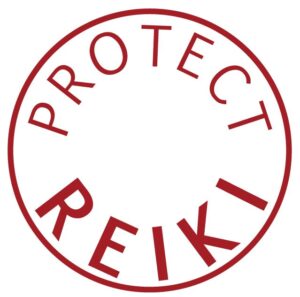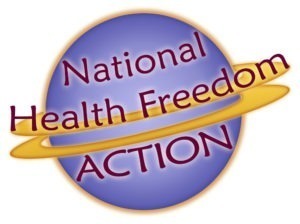Sign up to stay informed of legislative threats to Reiki practice.
 The Protecting Reiki from Regulation webinar on April 10, 2021 included an online panel with my colleagues, Reiki masters Rita Glassman and Susan Mitchell.
The Protecting Reiki from Regulation webinar on April 10, 2021 included an online panel with my colleagues, Reiki masters Rita Glassman and Susan Mitchell.
I can’t do justice to the rich detail offered in the webinar, but if you don’t have time to watch the nearly 2 hour recording, here’s a summary, with the handouts at the end.
Please keep in mind that none of the Protecting Reiki from Regulation webinar presenters are lawyers and all of this is offered as community service to educate about the current and pending threats to Reiki practice, and to empower the diverse Reiki community to take action.
Protecting Reiki from regulation webinar opening
The current situation is that we have no standards for Reiki practice or education, and great diversity among more than 200 practice styles. Confusion comes because the public doesn’t know that everything labeled “Reiki” is not the same, and that Reiki practitioners don’t agree on how to practice or even what Reiki practice is (such as the spiritual practice or energy medicine conversation).
Certificates v. licensing
Certificates can be issued by anyone. Beyond any personal significance, they are essentially meaningless unless they’re backed by standards which have been formally agreed upon across the industry. In the case of Reiki practice, for example, when people self-identify as a Reiki master, we have no way of knowing how they qualified. In order for Reiki master certification to be meaningful in a broad way, beyond the meaning it holds for the individual, all lineages and practice styles would have to agree upon the training required to call oneself a Reiki master. Clearly that’s not going to happen.
Licensing is voted into law by state legislatures. Each of the 50 states has unique licensing requirements for medicine, nursing, acupuncture, etc. Some states license massage practice; others don’t. As of April 2021, no states offer specific Reiki licenses. However, that’s not the only way your freedom to practice Reiki can be controlled. We’ll come back to that.
State licensing would dictate how to practice Reiki, how to teach Reiki, what you can say about Reiki practice. Licensing would also involve fees and require you to invest in continuing education.
The purpose of licensing is to protect the public from harm. The need for that is obvious when it comes to the practice of medicine, nursing, etc. However, the NIH/NCCIH website, accessed April 12, 2021, states “Reiki hasn’t been shown to have any harmful effects.” That’s significant because the NIH/NCCIH is the government body tasked with studying the safety and efficacy of complementary and integrative health practices.
Protecting Reiki from other forms of regulation
Common forms of regulation that could restrict your freedom to practice Reiki include:
- State licensing
- State registration (enacted in Vermont starting April 2021)
- State licensing for another practice that claims authority for the biofield
- Business licensing (can be enacted by towns)
- Appointed advisory board practice guidelines (the current situation in Florida).
Regulation happens most often at the state level, but municipalities can also pass laws that restrict Reiki practice.
How Massachusetts (MA) is trying to regulate Reiki and other practices
In February 2021, the MA Attorney General introduced An Act Regulating Alternative Healing Therapies in both houses of the MA legislature. The bill numbers might change once assigned to committee, but here they are as of April 12, 2021:
House Docket No. HD1708
Senate Docket No. SD1068
Rita Glassman has been opposing MA bills to require licensing for Reiki and other complementary practices since MA’s second legislative attempt in 2017. She asked that MA residents take the following actions. Please read Rita’s suggestions carefully even if you’re not in MA, so you’ll be familiar with the process if/when it happens in your state (more on that from Susan Mitchell).
Actions for MA residents to take now
RIGHT NOW, we need MA residents to contact your legislators and ask them to oppose this effort. You do not want them to sign on to the bill. Fewer legislators signing on to the bill weaken it. Please find your legislators here and make the calls.
The committee will set a date for the public hearing. There could be as little as 48 hours’ notice, so it’s important to prepare yourself now to testify.
Another attempt to regulate Reiki practice
Susan Mitchell is a long-time Reiki master who was trained by Hawayo Takata, with whom she had a close relationship.
Susan spoke about the attempts to regulate Reiki practice from two sister organizations, the National Alliance of Energy Practitioners (NAOEP) and the National Certification Council of Energy Practitioners (NCCOEP).
Those organizations plan to roll out bills to certify practitioners through NCCOEP and license Reiki practice. Eight states are targeted for the first legislative actions in 2021:
- Massachusetts
- New York
- Arizona
- North Carolina
- Tennessee
- Mississippi
- Oregon
- Florida
Like the MA bills, that legislation includes an exhaustive list of complementary practices besides Reiki.
It would be challenging enough (and perhaps impossible) to regulate the diversity of Reiki practice styles. Proposing that Reiki be regulated within such a vast framework as laid out by these organizations is clearly ill-advised and shows no real-world understanding of either Reiki practice or the Reiki community.
Arguments against occupational licensing
Susan Mitchell also detailed arguments against occupational licensing in general. These arguments are especially compelling because they are bipartisan and evidence-based.
Research done in the past eight years points to economic problems caused by occupational licensing, specifically that it:
- inhibits consumer choice by reducing the number of practitioners,
- increases the cost of services as licensing fees are passed on to consumers,
- creates unemployment by erecting unnecessarily high barriers to practice, and
- increases discrimination — disenfranchised populations are hit the hardest through systemic racism and sexism.
In what is surely a rare convergence of policy, both the Obama and Trump administrations advised states to reform their laws to reduce the prevalence of unnecessary and overly broad occupational licensing.
Regulation of Reiki practice is unnecessary given the NCCIH statement that Reiki practice is safe. The only excuse given by those who seek to regulate Reiki practice is that there are so many practitioners. Occupational licensing research clearly shows that unnecessary regulation undermines small businesses and suppresses job growth, coming down hardest on those with the slimmest margin of support, people of color and women.
Instead of regulation, ask for safe harbor legislation
 Given that licensing is to protect the public from harm, non-invasive practices don’t warrant licensing. But without being recognized by law as exempt from licensing, such practices are in a legal limbo, in that they could be construed as falling under a state’s medical licensing.
Given that licensing is to protect the public from harm, non-invasive practices don’t warrant licensing. But without being recognized by law as exempt from licensing, such practices are in a legal limbo, in that they could be construed as falling under a state’s medical licensing.
That means practitioners of non-invasive practices could be prosecuted for unlawful medical practice. There is no real defense against such prosecution; you either have a medical license or you don’t. The public’s access to non-invasive practices is hampered when practitioners have to practice under such legal uncertainty.
Safe harbor laws ensure the public’s access to non-invasive practices by protecting the practitioners from being prosecuted for unlawful medical practice. Safe harbor law makes it less likely that licensing would occur in the future because lawmakers are wary of messing with existing laws. If it ain’t broke, don’t fix it.
Diane Miller is the originator of the safe harbor concept. She led a grassroots movement to pass the landmark healthcare freedom bill in Minnesota in 2000, and founded National Health Freedom Action (NHFA). Eleven states have since passed some form of safe harbor legislation, and 15 others have introduced bills.
Find out if there is a healthcare freedom group in your state. If not, why not start one? NHFA also offers advocacy resources, including this link to find your state legislators.
Protecting Reiki from regulation: what you can do now
The best way to prepare yourself to make a difference is by becoming the best Reiki practitioner you can be, the Reiki practitioner only you can be.
Here’s your to-do list:
- Practice daily self Reiki.
- Hone your communication skills.
- Learn to give public Reiki demonstrations.
The difference daily self-Reiki practice makes
Daily self-Reiki practice gives you the foundation to be your best self, a walking product of your practice. It enables you to represent Reiki practice credibly, so others feel safe enough with you to want to hear what you have to say. Daily self Reiki helps you listen well to others, and to know what to say, when to speak and when to say silent.
How to start honing your Reiki communication skills
Honing your communication skills starts with learning to speak about Reiki practice in neutral language without any of the jargon Reiki practitioners commonly use (and often don’t even realize it’s jargon). Here are 3 simple steps to improve your Reiki talk.
Offering Reiki practice demonstrations
When you’re well established in your daily self-practice and you’re able to speak comfortably about Reiki practice in neutral language, consider offering Reiki demos. Start with friends and family to gain confidence, then move into public spaces. The idea is to bring Reiki practice to people where they are.
Share simple, straightforward information and an opportunity for a brief hands-on Reiki experience. Be professional, even if you’re not a professional. And be mindful to inform only. Stay away from proselytizing or promoting.
If you’re a professional, once you’re ready to start hosting public events, 7 Steps for Successful Reiki Public Events guides you through every step so you can leverage my decades of experience instead of learning from trial and error.
Prioritize pending legislation
Whenever a licensing bill has been introduced, as is the case in MA, the situation is an urgent situation and takes priority. However, there is also a Safe Harbor group in MA. Please support both groups.
Protecting Reiki from regulation webinar takeaways
We want to protect our freedom to practice Reiki as we choose both proactively — developing relationships with our state legislators now, to create a communication network and good will — and as there is an acute need, as with the MA bills that would require licensing for Reiki practitioners.
PLEASE NOTE: this is a developing situation. Details will change. At times, we’ll need fast action. I started the Protect Reiki email list to create a network of diverse Reiki practitioners who are motivated and prepared to respond quickly.
I’ll offer more specific guidance about contacting your legislators in another article soon.
Meanwhile, here are the handouts from the presentation:
Reiki Practice Fact Sheet
Legislative Contacts for the 8 States Targeted for Regulation
Sign up for the Protect Reiki email list to stay informed.
Connect with Rita Glassman and Susan Mitchell at Reiki Unified. Rita shared a breakdown of the initial application to have a teaching program approved by MA state, not including the licensure fee:
- $5,000 bond
- $2,500 application fee if you are a for-profit corporation; $1,500 if you are a nonprofit corporation
- $1,000 per instructor
Additionally, according to Rita, if you are not set up as a corporation in MA, it seems as if you will have to do this to get your teaching program approved. Attorney fees for this process may be in excess of $1500.
Sign the Change.org petition
PLEASE sign the petition opposing the MA licensing bills. You don’t need to live in MA to do so. Then please share the petition widely, not only in your community but with anyone who appreciates the non-invasive practices that would be unnecessarily regulated. It’s important that we have a good turnout to demonstrate to legislators that a large number of people make use of these practices.

Well done, Pamela!
Your initiative here should stand as a role model for community outreach, education and activism. I said as much in an email I just sent to the leadership of The Yoga Alliance, who has a history of fighting against governmental overreach. Although the MA bill does not specifically target yoga therapy or teaching, it is sufficiently broad and vague that it could capture those and other fields in the future.
Part of what I said in the email is:
…The proposed legislation is one of the most transparent attempts I can recall by a state government to treat an entire class of practitioners as potential criminals, and thus “guilty until proven innocent.” This inversion of the most basic principle of a rational legal code is the moral issue at the heart of all preventative regulatory action by the government. The fact that they are using the fight against human trafficking (which is a matter for criminal law enforcement) as window dressing makes this proposed bill all the more objectionable…
…I consider it (Pamela’s initiative) to be a very good model of activist community outreach. Furthermore, I believe that if YA took a more active role in fighting the proposed legislation, it would serve the long-term interests of both the yoga teaching and alternative health communities, and it would show that YA is taking a principled, big-picture view on the issue of resisting government overreach…
Thanks again, Pamela, for leading the way.
Leslie Kaminoff
Thank you for your support, Leslie!
Thank you so much Pamela for bringing awareness to many in the Reiki community about the several limitations and drawbacks that regulating the Reiki practice would bring us, in the US and potentially worldwide. I’m a Brazilian based in China and of course the development of this regulation in North America would certainly influence and affect the perception and further regulations of Reiki in other countries.
I’m also a certified coach with the ICF and from time to time there’s someone too trying to make it a governmentally regulated industry. There are both in Coaching and in Reiki practices an infinite number of possible ways to approach them, and I believe that’s the beauty of having this diversity for all tastes and personal or professional needs, taken they are clearly non-invasive practices. For instance, one thing is a MD getting a Reiki or Coaching training (that’s such a beautiful trend, by the way!), another is a MD trying to legislate how Reiki should be practiced within the limitations of Western medicine.
We may be respectful to conventional medicine and partner with them when treating clients, however Reiki practice cannot be determined and even less confined by the nowadays scientific method and the restrictions of Western medical models and therefore its laws to ensure safety (as Reiki’s already a safe practice!).
Organizations may earn their respect and credibility by adding value to the Reiki community and public at large, however imposing a specific way to practice Reiki or attempting to create one particular empirical testing for its treatment and results-only orientation shows an inconsistency with a deeper understanding of how Reiki works beyond our human limited expectations. Although general outcomes and patterns from a treatment may be observed in the person’s physiology and some research has been done to validate it, each whole person will respond to Reiki differently and, eventually, the spiritual aspect will also need to be taken into account.
Thank you for your thoughtful comment, Gregor.
While I agree with you that we don’t want medical professionals (or insurance companies!) defining Reiki practice, the reality is that they could succeed in being the legal arbiters of it, regardless how little they understand the practice, unless Reiki practitioners take action.
BTW Reiki practice actually does not run afoul of science, if it would only research markers of enhanced balance and resilience in the system after Reiki practice (as we did in the Yale study) instead of downstream specifics as done in pharmaceutical research.
Also, it would help enormously if Reiki practitioners were mindful not to use the term Reiki on its own, but rather specify Reiki practice (or session, or treatment, as is appropriate). When medical professionals see “Reiki” alone, they assume it’s a substance of some sort, leading to a whole host of concerns, understandable from their perspective. We need to make it easier for them to see how Reiki practice can support their work.